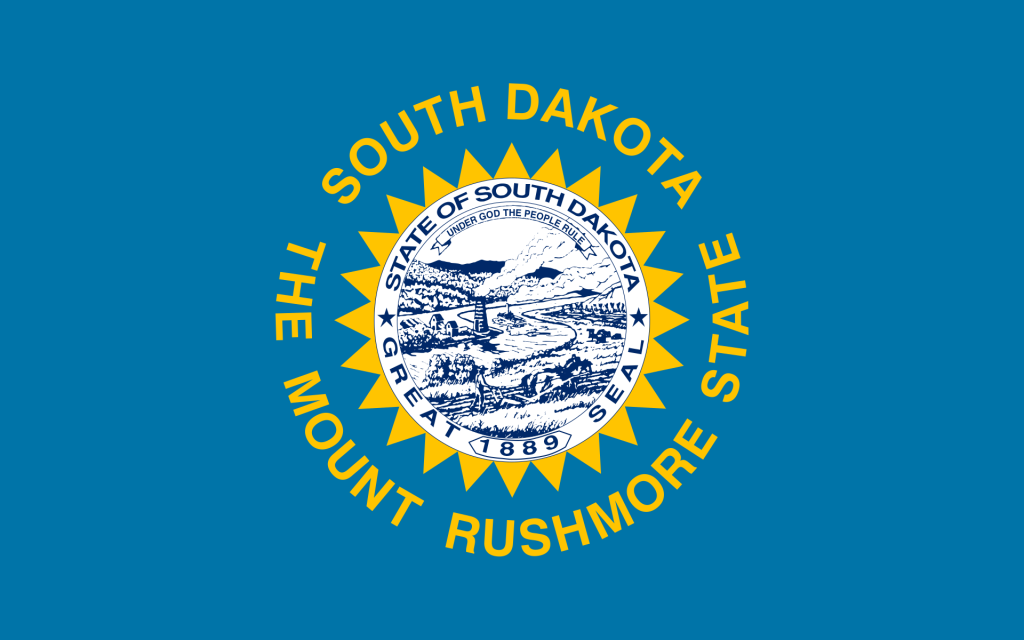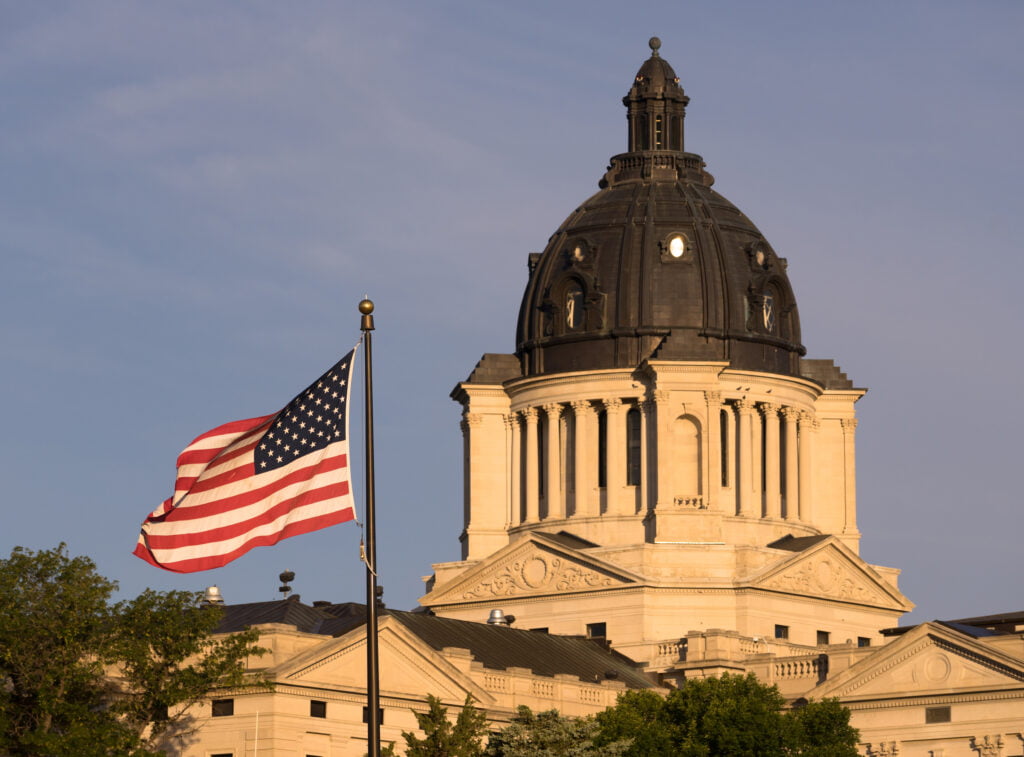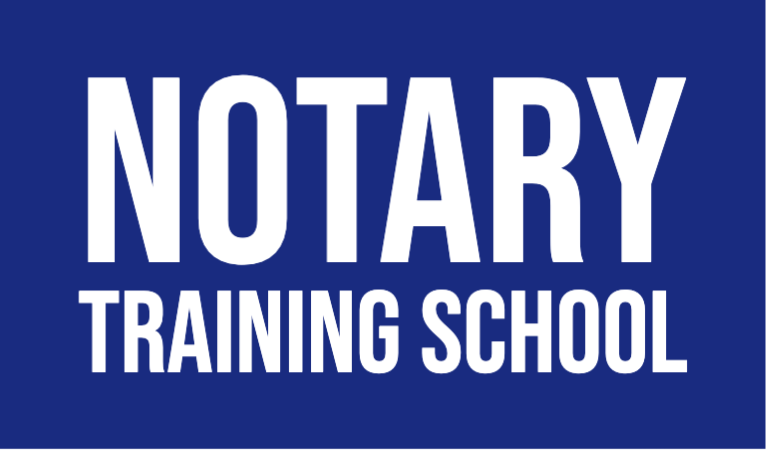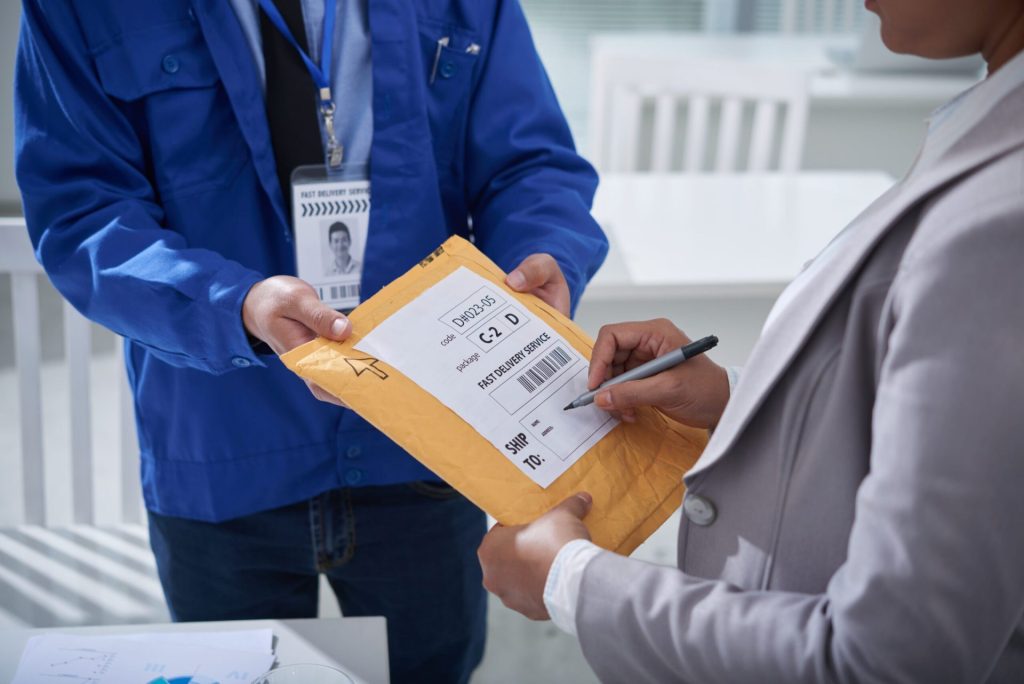How to Become a Notary Public in South Dakota

Do you want to take on a new challenge and make a difference in your community?
Becoming a notary public is an excellent opportunity to do just that!
Notaries are impartial witnesses who officially witness the signatures of parties involved in legal transactions.
With the proper knowledge and determination, almost anyone can become a notary public in South Dakota.
In this blog post, we will discuss the steps necessary to apply for a notary commission with the state government successfully.
By taking these simple measures, you’ll have all the information you need to start using your power as an official notary from South Dakota.
Who can become a South Dakota notary public?

Applicants for a South Dakota notary public commission must be residents of South Dakota (e.g., live at a South Dakota address), or live in a county bordering the state, but have a place of work or business in South Dakota.
Who can’t become a South Dakota notary?

Per South Dakota law, the South Dakota Secretary of State must deny any person previously convicted of a felony from becoming an appointed notary public.
What’s the application process to become a South Dakota notary public?

The application process is simple and can be completed online or by mail.
Step 1: Obtain your official seal. This can be purchased from an office supply store or an online company that specializes in seals. Be sure it meets state law requirements because you’ll need to send a stamp from it with your notary application. Your notary seal must contain:
- The name of the applicant
- The words “Notary Public” and “South Dakota”
- A border
- The word “Seal” if a rubber stamp is being used.
- The words “My Commission Expires” outside of the border. Or, a separate stamp can be used for this portion. The commission expiration date id not allowed to be in the border.
Step 2: Fill out the Notary Application Form. The State of South Dakota provides a downloadable notary application form. Complete the form and use the same name that’s on your seal. Your physical address (not a mailing address) is required. You’ll include an imprint of your notary seal in the top left corner.
Step 3: Take the oath: Unlike other states that require you to take the oath of office in front of an active notary, you can complete the oath portion of the application yourself.
Step 3: Complete the bond form on the application: You can fulfill this requirement by purchasing a $5,000 surety bond from an insurance company or through personal surety on the personal surety form (a notary can’t be their own personal surety).
Step 4: Submit the application, seal impression, bond, and $30 filing fee to the South Dakota Secretary of State by mail.
Step 5: If approved, you will receive a notary commission certificate issued by the South Dakota Secretary of State. You can perform notarial acts once you receive this notarial certificate.
Is notary training required to become a South Dakota notary?
No, there is no state-mandated training requirement for notaries in South Dakota.
However, taking a notary training course is highly encouraged. Notary courses provide information about the duties and responsibilities of being a notary public, laws that apply to being a notary public, and tips on how to avoid common mistakes notaries make.
Is a notary exam required to become a South Dakota notary?
No, there is no state-mandated exam required to become a notary public in South Dakota.
Is a notary bond required to become a notary in South Dakota?
Yes, all South Dakota notaries must file a $5,000 surety notary bond with the Secretary of State’s office.
This bond protects your customers and the state from any potential acts of fraud or negligence on your part. Personal surety can be used as an alternative to a notary bond.
Is a notary errors and omissions insurance policy required to become a South Dakota notary?
No, a notary errors and omissions insurance policy is not required to become a South Dakota notary public.
However, an errors and omissions policy can provide extra coverage against legal fees in case of unintentional mistakes on your part as a notary.
Do South Dakota notaries public need a notary seal?
Yes, all South Dakota notaries must use a seal when performing notarial acts.
The official seal must include the name of the notary applicant, the words “Notary Public” and “South Dakota”, a border, and the word “Seal” if a rubber stamp is being used. The commission expiration date is not allowed to be within the border.
Do South Dakota notaries need a notary journal?
No, South Dakota does not require notaries to record past notarial acts in a notary journal. It is highly recommended that all notaries keep a journal to document each transaction, as this can help protect them from potential legal issues in case of a dispute and help the parties with recalling past notarial acts.
Additionally, some businesses may require that their documents be recorded in an official journal.
How much does it cost to become a South Dakota notary?
If you wish to become a Notary Public, there is an application filing fee of $30.
The surety bond should cost about $50.
As a Notary, you will need to get some supplies. These include a rubber notary stamp, which should cost around $15-$25, and a notary journal, which is recommended but not required by law. The journal will cost between $10-$50. You will also need pens, sticky notes, and ink for your notary seal.
How long does it take to become a notary in South Dakota?
To ensure your Notary application is processed promptly, the South Dakota Secretary of State suggests allowing at least 10-19 days for processing.
How long is the term of a notary public commission in South Dakota?
The term of a Notary commission in South Dakota is six years.
How much can a South Dakota notary public charge to notarize documents?
Notaries public in South Dakota are limited to a fee of $10 for each notarial act they perform.
How do I become a notary signing agent in South Dakota?
To become a Notary Signing Agent, you must be a commissioned notary in South Dakota. You should take an additional course on executing loan document signings and pass the associated exam. Once you have completed the course and passed the exam, you will be certified as a Notary Signing Agent in South Dakota.






Responses